Postpublished at 09:18 GMT 20 March 2015
We'd love to see your pictures but remember not to look at the Sun directly. Remember you can also read our main news story here as well as watch the BBC News channel for the latest live images.
All parts of the UK have been witnessing a partial solar eclipse, which started at about 08:18 GMT in southern England and peaked at around 09:36
The Faroe Islands and Svalbard in the Arctic Circle were the only places to experience a total eclipse
The amount of the sun's disc which is obscured varied from 96% in northern Scotland to 83% in southern England
Chris Lansdown, Lauren Turner, Kerry Alexandra, Jennifer Green and Michael Orwell
We'd love to see your pictures but remember not to look at the Sun directly. Remember you can also read our main news story here as well as watch the BBC News channel for the latest live images.
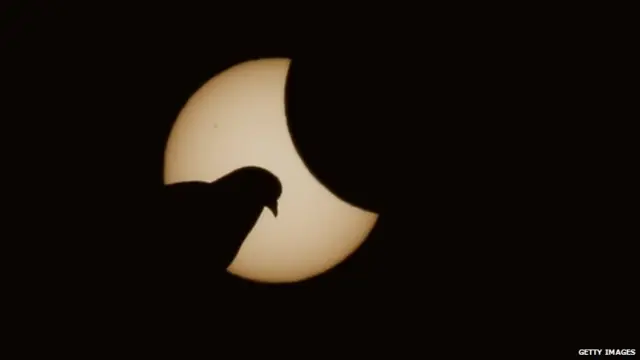 Image source, Getty Images
Image source, Getty ImagesA dove is pictured in front of the eclipse in Munich, Germany. Central Europe is expected to get a 75% eclipse this morning.
Dr Anne Lawrence from the University of Reading has been looking at what our ancestors thought of solar eclipses, external. Apparently some thought a celestial dragon caused them by swallowing the sun or the moon.
Andy Burns from the Wiltshire Astronomical Society is watching events at the Avebury World Heritage site at Silbury Hill. He's seen eight eclipses in the past and describes them as "emotional experiences".
He said: "It doesn't matter that I've been around for a good number of years but you still remember those eclipses and they really are tearjerkers.
"The emotions that they can extract - all around you can see whole crowds of people with odd tears down their face - fantastic."
@BBCStargazing tweets, external: "We predicted the #eclipse would happen 100s of yrs ago, but didn't know if we could see it until now! Real science. #Weather #StargazingLive."
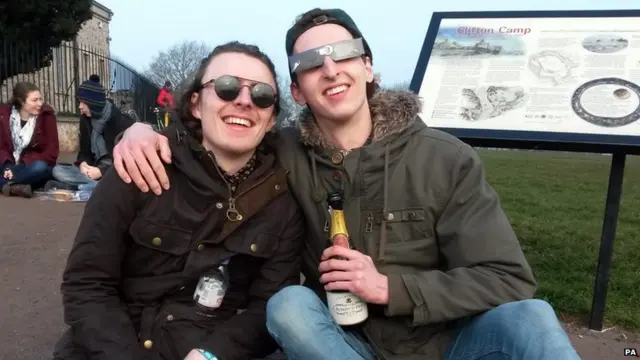 Image source, PA
Image source, PAStudents Greg Robertson, 19, and Sam Firminger, 20, have a suitably celebratory drink ready as they wait for the eclipse at Clifton Observatory, Bristol. The eclipse should only be viewed using special eclipse glasses like the ones on the right.
For more than a century scientists have debated the existence of "eclipse wind". Over the years people have reported feeling a change in wind speed and direction during an eclipse. Some scientists think eclipse wind is imagined, but others think it is caused by the cold outflow of air from the umbral shadow (the region that's totally obscured by the Sun).
To try to solve the mystery once and for all, meteorologists at the University of Reading have joined with BBC Learning to ask UK schools to take part in a national eclipse weather experiment this morning. They hope this data could finally settle the debate.
Use the "live coverage" tab above to watch BBC One's Stargazing Live: Eclipse special (09:00 - 10:00)
Some budding BBC School Reporters asked experts about the solar eclipse. Read what they found out here.
The Royal Astronomical Society has a really detailed guide to everything you need to know about the eclipse. Take a look at their leaflet here, external.
Dr Charlotte Hawkins in Devon emails: Sun is peeking out from behind the cloud layer in Ottery St Mary, Devon right now. We may be lucky and actually see the eclipse!
Total eclipses occur, on average, every 18 months somewhere on our planet. However you'd have to wait around 375 years for one to happen again in the same exact place.
Animation: Why are total solar eclipses so rare?
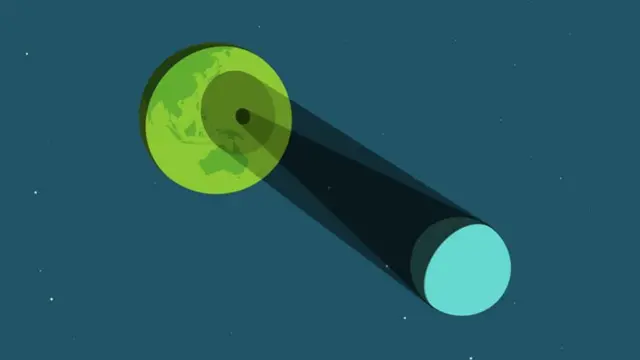
Today's eclipse will mark the last total solar eclipse in Europe for over a decade. The next one will appear on 12 August 2026.
Where are you gathering to watch the #eclipse, external? Send us your pictures now. Remember not to look directly at the sun http://www.bbc.co.uk/guides/zcytpv4
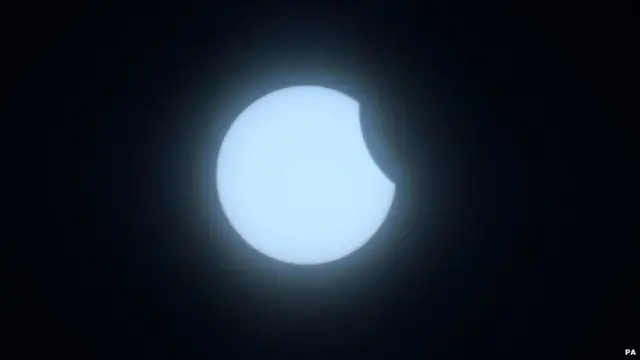 Image source, PA
Image source, PAHere's the eclipse beginning over the Eden Project near St Austell in Cornwall. A special filter has been applied to the camera.
Liz Bonnin is taking a flight over the Faroe Islands for the BBC's Stargazing Live. She's written a blog about her preparations for the experience.
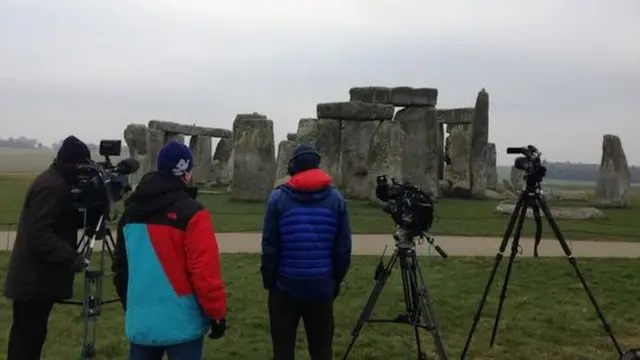
Here's the scene at Stonehenge, where some will be celebrating the spring equinox as well as the solar eclipse, as captured by the BBC's Duncan Kennedy.
Total solar eclipses last up to seven minutes and 30 seconds, so it's difficult to study specific effects on animals. But there have been plenty of casual observations of behavioural changes as they're plunged into darkness and the temperature drops. Flowers have closed for night, birds have gone in to roost, insects have stop flying and nocturnal animals, like bats and owls have become active.
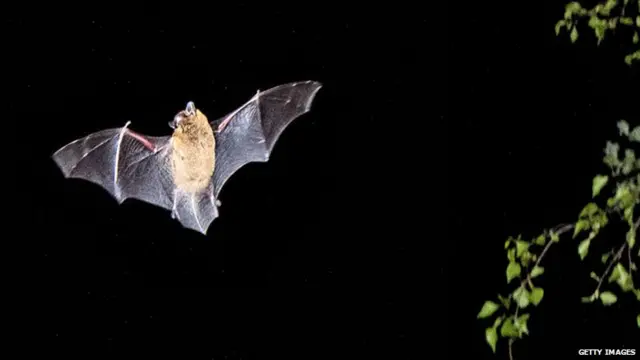 Image source, Getty Images
Image source, Getty ImagesChrissie Day in Harwood emails: Way up in the North Peninnes here at 1,400 feet, it already feels and sounds different, it's very quiet. The birds are quieter and even the new born lambs are quiet for this hour of the day.
So where are the best places to see the eclipse, from a weather perspective? Unfortunately it looks like there will be cloud over much of the UK. BBC Weather presenter Alex Deakin has the latest information.
"It's a really messy scene with bits of cloud here and there. Wales, Lincolnshire and the East Midlands are largely clear and east Scotland is still clear too.
"Edinburgh is a good place to get a view at the moment. There's very little chance of seeing it in London and it's hit and miss elsewhere."
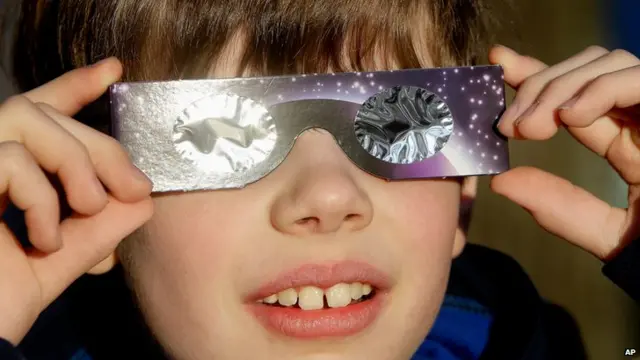 Image source, AP
Image source, APSpecial protective glasses like these ones, being worn by a boy in Berlin, Germany, need to be used to see the eclipse - you can risk serious damage to your eyes otherwise.